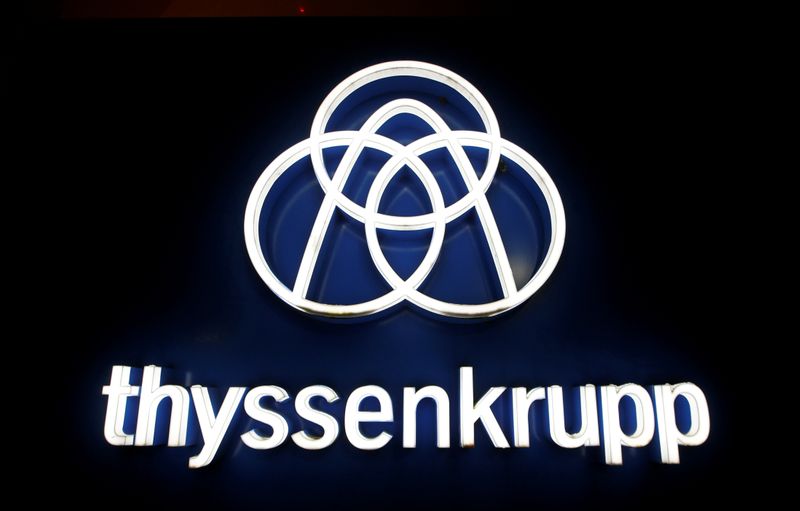By Tom Käckenhoff, Christoph Steitz and Vera Eckert
DUESSELDORF/FRANKFURT (Reuters) - Germany's RWE plans to produce hydrogen from renewable energy to supply steelmaker Thyssenkrupp (DE:TKAG), the two companies told Reuters.
The alliance between two of Germany's heaviest polluters comes as Europe's largest economy maps out a future without nuclear or coal power.
RWE is currently heavily reliant on coal but is able to enter the hydrogen business due to changes to Germany's laws as the government looks to boost hydrogen production.
The planned cooperation between the two sector leaders is aimed at using green hydrogen, where the electricity used in the electrolysis that separates hydrogen from water comes from renewable sources.
RWE plans to build a 100 megawatt hydrogen plant in the state of Lower Saxony to supply Thyssenkrupp's steel operations in Duisburg by the middle of the decade, the companies said, responding to a Reuters request for comment.
Steelmaking accounts for 7-9% of global emissions and has long been considered an ideal use case for hydrogen.
The plant will be able to deliver 1.7 tonnes of hydrogen gas per hour, or about 70% of that required by a blast furnace which Thyssenkrupp plans to install, they said.
This could produce 50,000 tonnes of climate-neutral steel per year, enough needed to make as many cars, they said.
Thyssenkrupp produces 11 million tonnes of steel a year but the partnership would mark a start and reflects an industry-wide shift toward greener energy as rivals, including heavyweight ArcelorMittal (NYSE:MT), start to explore the technology.
"Climate neutrality in the steel sector is possible and we're accelerating the switch with regard to our production," said Bernhard Osburg, CEO of Thyssenkrupp Steel Europe.
Germany has committed 9 billion euros ($10.2 billion) to expand hydrogen capacity at home and abroad as part of a national strategy to make the country a key supplier of the technology worldwide.
The companies said the partnership was dependent on the development of a hydrogen transport network.

Roger Miesen, CEO of RWE's Generation division, said the government's strategy needed to be implemented fast to ensure an effective hydrogen expansion. "Investment decisions require planning certainty."